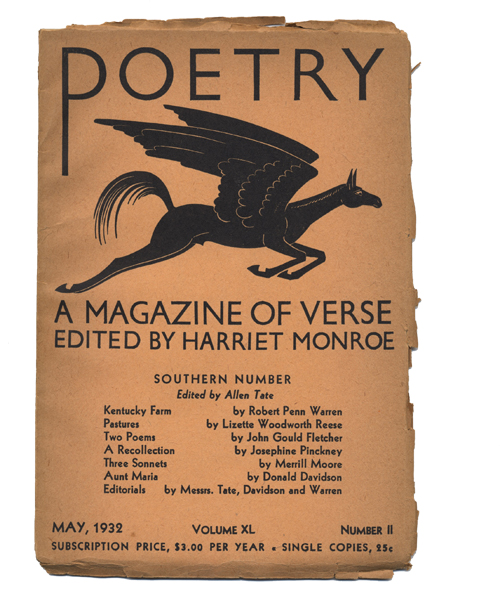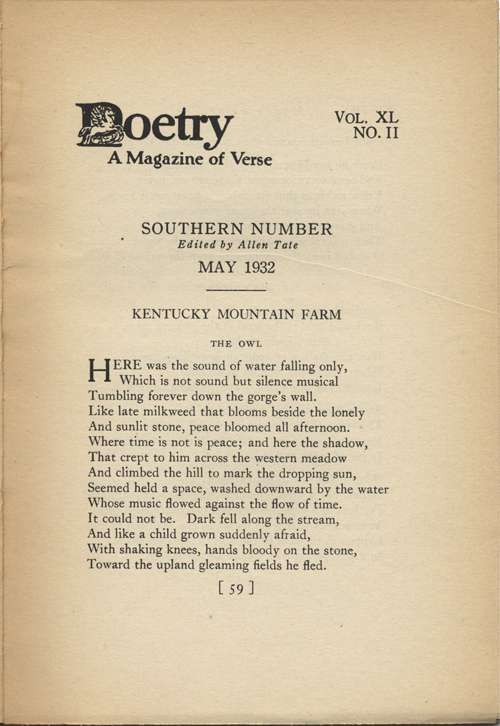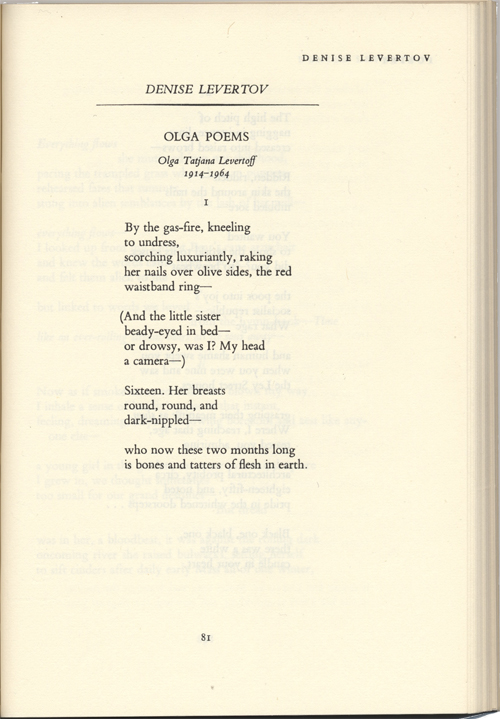Fugitives, works in progress, young Duncan, and Marianne Moore
Our popular annual translation and Q&A issues are part of a long tradition of special issues that have focused on such subjects as the Objectivists (edited by Louis Zukovsky), Chinese poetry, and post-war Italian poetry. This month we’d like to draw attention to two issues in particular: the May 1932 and April-May 1965.

Poetry's May 1932 issue was edited by Allen Tate and titled “The Southern Number.” It featured several members of “The Fugitives,” a group of Southern writers who founded and published in Fugitive magazine in Nashville, Tennessee. For two prominent Fugitives, Robert Penn Warren and Donald Davidson, “The Southern Number” marked their first appearance in Poetry. Warren and Davidson each contributed poetry and "some commentary on [Southern poets'] present position, intellectually and socially speaking," as Allen Tate puts it. Warren’s series of three poems, “Kentucky Mountain Farm,” opens the issue:

Warren was twenty-seven at the time and went on to found The Southern Review three years later. He published poems and criticism in Poetry almost every year throughout the thirties and early forties.
Poetry’s April-May 1965 double-issue is devoted to works in progress, long poems, and sequences. Poetry’s then editor Henry Rago explains that the issue’s theme aims to
give some sense not only of the broader intentions of each of these poets at this moment but also, within all the obvious limits, of some larger "work in progress": energies, directions: the going thing, in its motion, here and now…. We have made the point here more than once that poems are made by poets, not by groups or power blocs or enterprising journalists. Correspondingly, the poets make poems: not slogans or programmes or "news". But when enough poets are seen in one place, at one time, each minding his own business, some larger impressions just might be possible.
The issue reads like a Who’s Who of prominent sixties poets: Robert Creeley, Robert Duncan, Galway Kinnell, Kenneth Koch, Adrienne Rich, Anne Sexton, Gary Snyder, and several others. Among the gems is Denise Levertov’s “Olga Poems,” written for her sister:

Read the rest of the six-part poem in our archives.
Speaking of Robert Duncan, he first appeared in Poetry's May 1942 issue when he was only twenty-three years old. The issue includes his poem “A Spring Memorandum,” which was written while he was in training at Fort Knox:
Look! I am not native. I am a fox caught,
baited, damped. I will claw my way free
from my own flesh, spring the lock at the wrist
leap out, away, power-dive to the darkness,
bleed to the wood, to run the red river
out of this body. I am not of this kind.
Green bark was my mother. My father is
Death, the most wild and the free way.
Duncan’s other poem in the issue is the rarely mentioned “A Pair of Uranian Garters for Aurora Bligh.”
By the way, if you haven't read Maureen N. McLane's superb piece on Marianne Moore, "the stealth weapon of American poetry," in our May 2012 issue, you really should. After all, Marianne Moore was first published in Poetry ninety-seven years ago this month, in May 1915. (Since we're big on ages today: She was twenty-seven at the time.) You can read the five short poems, called "Pouters and Fantails," here and read the dozens of other poems she published in Poetry over the years in our archive.


